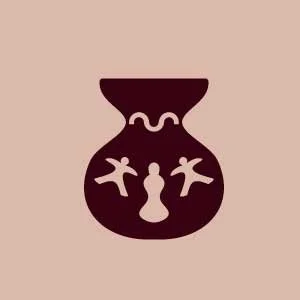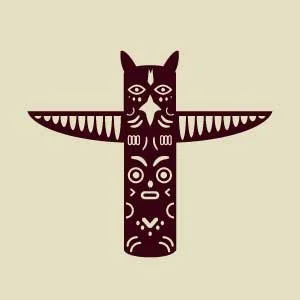Thanks in part to the work that we do at the CHILD-BRIGHT Network, patient-oriented research has been growing as a groundbreaking paradigm in healthcare in Canada that emphasizes active involvement and collaboration with people with lived experience and their communities in all aspects of the research process. This approach recognizes the unique value of lived experiences and local insights in shaping effective healthcare solutions. While patient-oriented research has gained prominence in recent years, it's important to acknowledge that Indigenous Knowledge and practices have long been pioneering the principles that underpin community-based healthcare approaches. Incorporating Indigenous Knowledge in patient-oriented research enhances the value of cultural diversity, fosters community engagement, and results in healthcare approaches that are effective as well as culturally sensitive.
The synergy between Indigenous Knowledge and patient-oriented research
Indigenous communities across Canada possess a rich tapestry of knowledge and practices that have been nurturing community well-being for centuries. Rooted in the interconnectedness of all aspects of health—physical, mental, emotional, and spiritual—Indigenous Knowledge offers profound insights into holistic healthcare.
Incorporating Indigenous Knowledge in patient-oriented research offers a unique opportunity to bridge the gap between Western medical practices and Indigenous healthcare traditions. It acknowledges that healthcare solutions are most effective when they are rooted in cultural context and community needs. By drawing on the strengths of both worlds, healthcare researchers can develop interventions that are not only clinically sound but also respectful of cultural diversity and community values.
Key contributions of Indigenous Knowledge to patient-oriented research
Holistic health perspective: Indigenous communities often view health holistically, recognizing the interconnectedness of physical, mental, emotional, and spiritual well-being. This holistic approach emphasizes the importance of addressing all these aspects for child development and wellness. For instance, it ensures that children are supported in all dimensions of their health[1].
Community-centered care: Indigenous communities value community-based care and support networks. In patient-oriented research, involving the community in decision-making and research co-design can lead to more relevant and effective interventions. For example, the Mohawk Nation's approach to child development often involves Elders and community members in decision-making, ensuring cultural relevance and community engagement[2]. In patient-oriented research, involving the community in decision-making and research design can lead to more relevant and effective interventions.
Land-based healing: Many Indigenous cultures hold the belief in the healing potential of the land, where land-based activities like hunting, fishing, and traditional food practices can be integrated into healthcare strategies aimed at enhancing child development and overall well-being. An illustrative example of this practice is found in the Inuit community of Nunavut, which incorporates traditional land-based activities into child development programs, notably the Makimautiksat Youth Camp. This program adopts a holistic approach to youth wellness, drawing upon Inuit wisdom and traditions encompassing physical, mental, emotional, and spiritual well-being, and supplements these elements with land-based components guided by Elders and knowledge keepers[3]. Through this comprehensive approach, this fosters cultural heritage with contemporary research[4].
Cultural safety, sensitivity, and humility: Cultural safety in healthcare involves providing care that respects and acknowledges the cultural beliefs and practices of Indigenous people. This approach can help reduce healthcare disparities and improve healthcare outcomes. The Anishinaabe Nation in Ontario places a strong emphasis on cultural humility in healthcare, ensuring that providers continuously learn from and respect the cultural diversity of their patients[5][6]. Patient-oriented research recognizes these principles as essential for reducing healthcare disparities and improving patient outcomes.
As we move forward in our healthcare journey, embracing patient-oriented research as a transformative approach, let's also honour the pioneering contributions of Indigenous Knowledge. By uniting the strengths of both Indigenous wisdom and patient-oriented research, we can build a healthcare system that not only prioritizes clinical excellence but also celebrates cultural diversity, community values, and the power of lived experiences. The synergy between Indigenous Knowledge and POR is a testament to the potential for collaboration and innovation in creating a healthier, more inclusive future for all.
Want to learn more about our work in Equity, Diversity, Inclusion, Decolonization, and Indigenization (EDI-DI)? Read our EDI-DI framework here.
[1] https://www.mcgill.ca/tcpsych/files/tcpsych/Report8.pdf Oblin, C. (1997). (rep.). Widening the Circle: Collaborative Research for Mental Health Promotion in Native Communities (Vol. C, p. 32). Montreal, QC: McGill University.
[2] Viscogliosi C, Asselin H, Basile S, Borwick K, Couturier Y, Drolet MJ, Gagnon D, Obradovic N, Torrie J, Zhou D, Levasseur M. Importance of Indigenous elders' contributions to individual and community wellness: results from a scoping review on social participation and intergenerational solidarity. Can J Public Health. 2020 Oct;111(5):667-681. doi: 10.17269/s41997-019-00292-3. Epub 2020 Feb 27. PMID: 32109314; PMCID: PMC7501322.
[3] Indigenous Land-Based Healing Programs in Canada - nwtspor.ca. Hotıì ts’eeda Northwest Territories SPOR Support Unit. (2019, November 6). https://nwtspor.ca/sites/default/files/2019-11-06_ht_lit_review_indigenous_land-based_healing_final.pdf
[4] Shirley Tagalik, S. (2012, January). Inuit Qaujimajatuqangit: The role of Indigenous knowledge in supporting ... he National Collaborating Centre for Indigenous Health . https://www.ccnsa-nccah.ca/docs/health/FS-InuitQaujimajatuqangitWellnessNunavut-Tagalik-EN.pdf
[5] FNHA Policy Statement: Cultural Safety and Humility." First Nations Health Authority, www.fnha.ca/Documents/FNHA-Policy-Statement-Cultural-Safety-and-Humility.pdf
[6] Indigenous History and Health Systems Transformation Booklet." Indigenous Primary Health Care Council, iphcc.ca/wp-content/uploads/2022/09/Indigenous-HST_Booklet.pdf






